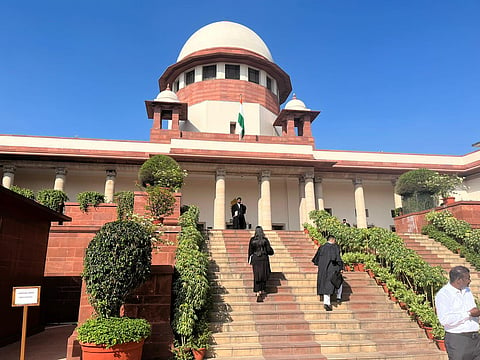

NEW DELHI: The Supreme Court recently pulled the plug on the shifting of 100 year-old crematorium at Masoodpur village in posh Vasant Kunj area to Kishangarh by quashing a Delhi High Court’s two decade-old order.
A bench of Justices MR Shah and MM Sundresh however, directed the South Delhi Municipal Corporation (SDMC) to take steps for modernising the crematorium by shifting to a modern electric crematorium within a year.
The bench noted that the crematorium was being used for village people since 1957 and that the residential colonies in Vasant Kunj had come into existence in 1990. “Merely because the residents of Vasant Kunj in the national capital have started residing subsequently, it cannot be a ground to shift the crematorium or not to use the crematorium at Village Masoodpur,” the bench said.
The court also said, if the request made on behalf of respondent No. 1 (Federation mof Residents Welfare Association, Vasant Kunj) is accepted, then every crematorium in the city/town will have to be shifted outside the town/city, which shall not be in the interest of the residents of the village/city/town.Therefore, the High Court ought to have modified its earlier order dated 03.12.2003, in which it was directed to shift the crematorium at Village Masoodpur to Kishangarh.
Court’s order came in a plea preferred by SDMC against HC’s December 6, 2016 ruling in which the HC had refused to its earlier order passed in 2003. Appearing for the civic body, Advocate Vandana Sehgal
had argued that after HC’s 2003 order, the Standing Committee of the Municipal Corporation had taken a conscious decision not to close the crematorium at Village Masoodpur.
Laying emphasis on MCD’s role to maintain places for disposal of dead, she added that merely because residential colonies came into existence eventually, it could not be a ground to close the crematorium which was in use since long.